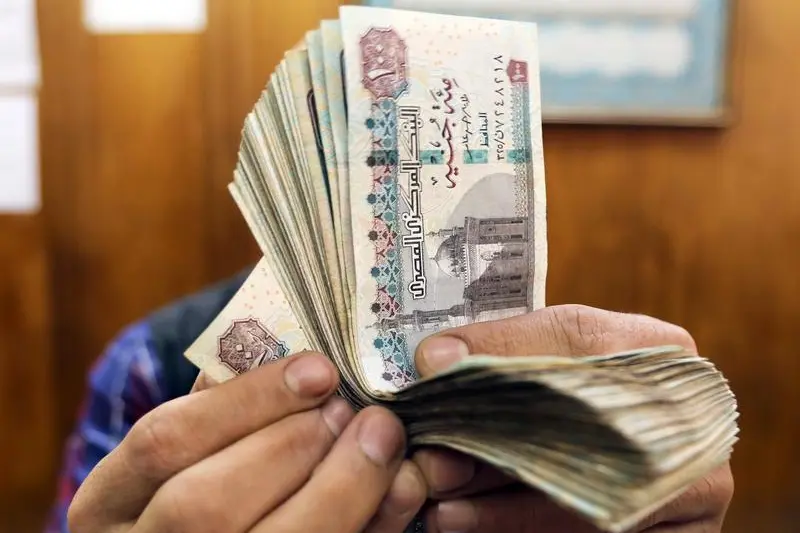PHOTO
Egypt's pound held steady on Thursday, a day after the central bank let the currency plunge and announced a shift to a more flexible exchange rate system as Cairo secured an expanded $8 billion programme with the International Monetary Fund.
The pound stayed early trade in the same range around 49.5 to the dollar it had settled at near closing on Wednesday, LSEG data showed. Before Wednesday's de-facto devaluation and a steep interest rate hike, the central bank has held the currency for about a year at just under 31 pounds to the dollar.
A more flexible exchange rate, long a key demand from the IMF, is seen as crucial for restoring investor confidence in an economy that has been hobbled for the last two years by a foreign currency shortage.
Egypt has promised such a move in the past, only to resume holding the currency at a fixed rate, while much of the economy depended on a black market rate that fell as low as 70 pounds, which central bank governor Hassan Abdalla described on Wednesday as a "disease" that reflected a lack of trust in the financial system.
"Thankfully, I can stand here today and say we have enough to fulfil our obligations and more," he said.
The central bank would still have the ability to intervene, as in other countries, in the case of "illogical movements," Abdalla said.
The IMF, which agreed to add $5 billion to its existing $3 billion loan programme with Egypt, has said it is looking for a sustainable and unified exchange rate that was determined by the market.
Under the programme, Egypt has committed to undertake structural reforms to stabilise prices, manage the debt burden and encourage private-sector growth. On Wednesday, Abdallah said that Egyptian interest rates, long amongst the highest globally, would now be on a "downward track."
The pound's devaluation and the agreement with the IMF come two weeks after Egypt signed an investment deal with Emirati sovereign fund ADQ that includes $24 billion payment for rights to develop a prime stretch of Mediterranean coastline.
It also includes the conversion of $11 billion in existing deposits to be used for unspecified projects across Egypt. The Egyptian government said the total of $35 billion would be transferred within two months.
The foreign currency shortage has curbed local business activity and led to backlogs at ports and delays in commodity payments.
Remittances from Egyptians working abroad, the country's top single source of foreign currency, slowed sharply last year amid expectations that the pound would fall.
Since early 2022, when the foreign currency shortage worsened, the pound has now lost more than two-thirds of its value against the dollar in a series of staggered devaluations.
(Reporting by Nafisa Eltahir, additional reporting by Nayera Abdallah and Tala Ramadan, Writing by Aidan Lewis Editing by Tomasz Janowski)





















